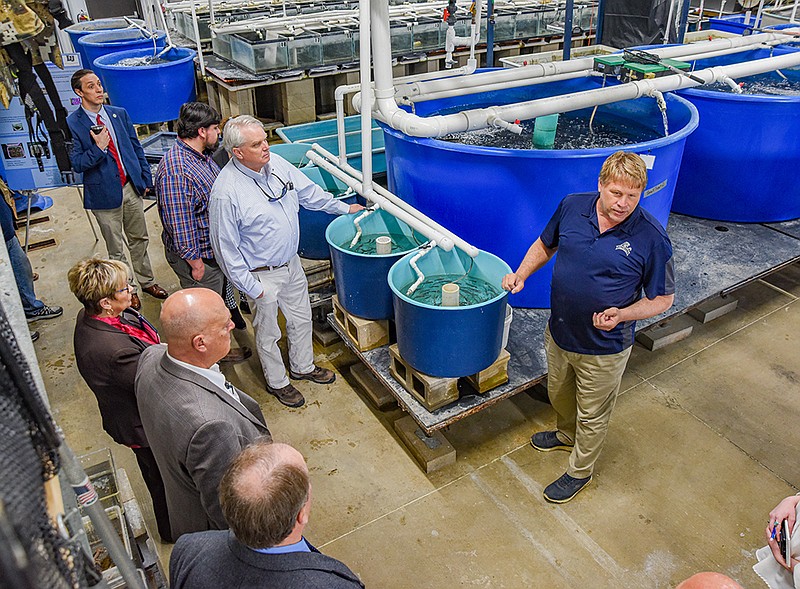JEFFERSON CITY, Mo. -- Members of the state's House and Senate agriculture committees toured Lincoln University facilities Monday afternoon to learn more about the school's growing agriculture programs.
Beginning the visit at the Dickinson Research Center, lawmakers heard remarks from researchers at Lincoln University (LU) and the Dean of the College of Agriculture, Environmental and Human Sciences, Majed El-Dweik.
The purpose of Monday's visit was to highlight "what the College of Agriculture at Lincoln University does, as a land grant university," El-Dweik said.
LU is one of two land grant universities in the state, the other being the University of Missouri.
"Currently, the state is supposed to match one to one. So, every dollar that we get from the federal (government) the state has to match it," El-Dweik said, adding that currently the state is only matching about 53 percent of the federal funding.
The University of Missouri, however, is receiving above the one-to-one funding ratio from the state, he added.
"What I'd like to see in coming (legislative) sessions, is the full funding of our match to allow us to expand our programs and services to the counties that we are not serving currently," El-Dweik said.
Some of the programs, like integrated pest management and industrial hemp production, were highlighted at Monday's event.
"It always interests us to see what our land grant universities are doing," Rep. Greg Sharpe, R-Ewing, said Monday. "Lincoln (University) seems to have carved out a spot here, a very needed spot, to work in this hemp production especially."
El-Dweik noted LU and the University of Missouri "do not duplicate our work, we complement each other."
"The University of Missouri, because of the types of programs that they have, they tend to gravitate specific farmers, specific stakeholders," such as corn and soy farmers, El-Dweik said. "Any other areas ... specialty crops ... industrial hemp ... horticulture, native plants, microgreens ... those farmers come to us, or we go to them."
A primary focus of the LU agriculture department is also to aid underserved communities.
"Minorities, underserved communities, those are our stakeholders," he said. "We strategically located our regional offices throughout the state of Missouri ... because of where we have stakeholders in those regions that fit that category."
An increase in funding would allow LU to expand services to more communities, El-Dweik said.
"There are regions that we do not serve, because, again, we don't have the funding," he said. "If we have our (one-to-one) match, then you will find us to be more present in those counties."
Lawmakers also toured the Dickinson Research Facility before traveling to the George Washington Carver Farm.
"It's just neat, all the different things that they're doing," Sen. Mike Bernskoetter, R-Cole County, said. "Every time you go there, you learn something new, or you learn something different that they're doing or working on -- they're always upgrading their research."

